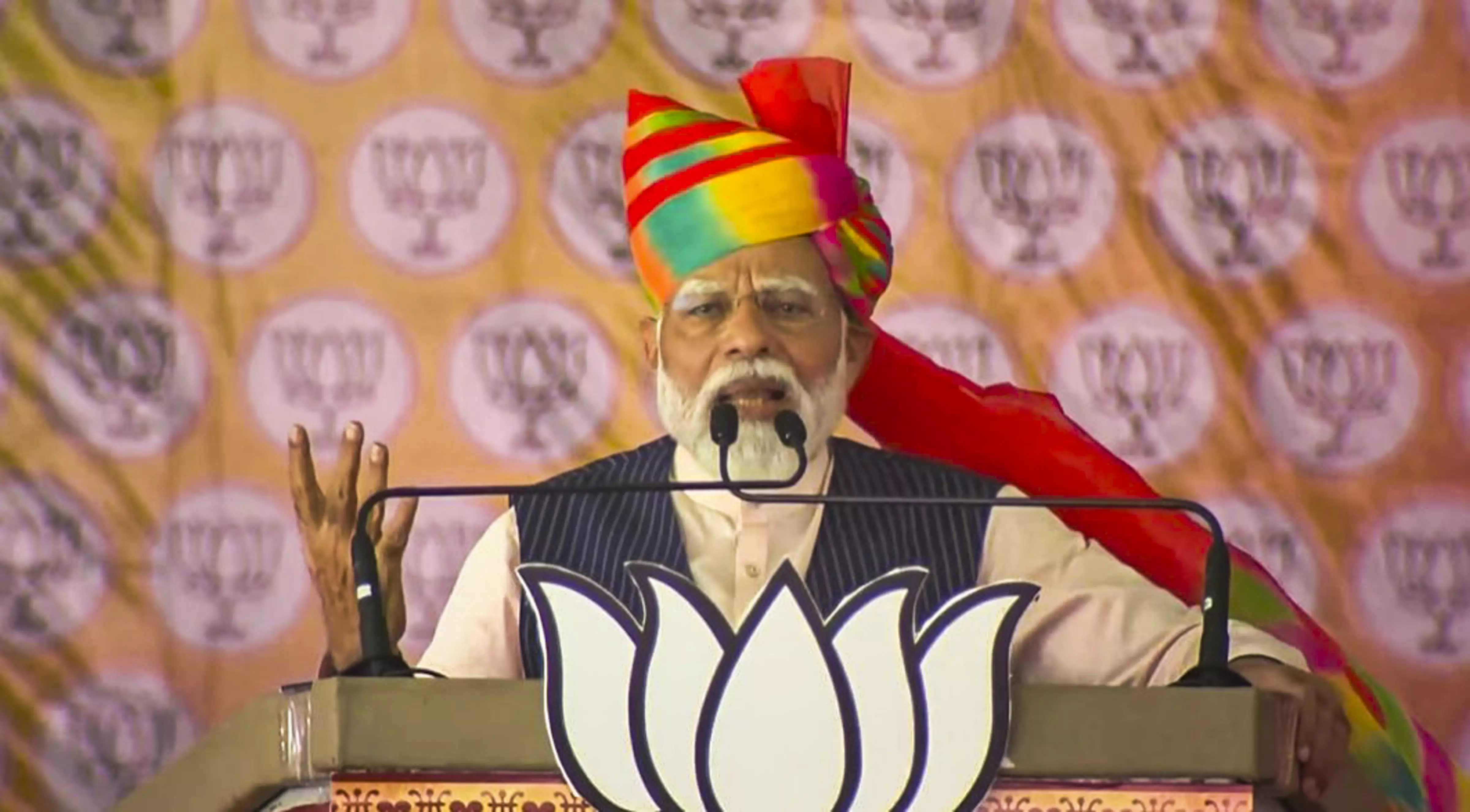
PM Modi has legalised corruption, indulging in hypocrisy: Congress
The Congress also alleged the BJP government at the centre has politicised anti-corruption efforts by unleashing probe agencies against political opponents

Launching a counter-attack against Prime Minister Narendra Modi's attempts to corner the opposition on the issue of corruption, the Congress on Saturday (April 13) alleged the BJP government at the Centre has consistently hampered anti-corruption efforts across the country.
Congress general secretary Jairam Ramesh alleged that the BJP government has "legalised" corruption through electoral bonds, politicised anti-corruption efforts by unleashing probe agencies against political opponents and slowed down the legal process against politicians who joined the BJP.
"It takes a special kind of hypocrisy for PM Modi to parade himself around the country screaming 'Bhrashtachar Hatao'. No one has done more to legalise and normalise corruption than Prime Minister Modi," he alleged.
Weaponising agencies against opposition
In his election speeches, Modi has made a strong pitch on the issue of corruption, claiming that while he wants to finish the menace, the Congress and other opposition parties were targeting him for it and have come together to protect the corrupt.
Ramesh claimed that in July 2018, the Modi government amended the Prevention of Corruption Act, rendering anti-graft bodies ineffective.
"Six years later, 65 per cent of anti-corruption probes in Maharashtra are still pending approval.
How BJP shielded officials against graft probe
"How the BJP rendered anti-corruption bodies ineffective: In July 2018, the Modi Sarkar introduced Section 17(A) to the Prevention of Corruption Act (PCA) to supposedly protect government servants from frivolous complaints. The legal process is an inquiry to FIR to the chargesheet.
"Before this new 'safeguard' was added, Section 19(A) of the PCA required anti-corruption bodies to seek approval from the government/department before filing a charge sheet, the last step in the legal process," the Congress leader claimed.
He said the Modi government' amendment requires anti-corruption bodies, including the CBI, to seek approval even before launching an investigation, the first step in the legal process.
"It's a tremendous weakening of the powers of anti-corruption agencies," he alleged.
Weaking anti-graft agencies
Ramesh said the amendment required the government to make their decision within a maximum of four months, but it does not mention what action can be taken if the time limit is not followed.
"This, unsurprisingly, has been widely misused. Out of 354 Anti-Corruption Bureau (ACB) cases currently pending approval before the state of Maharashtra, only two were addressed within the time limit.
"In the remaining 352, the ACB has not heard from the concerned government or department for more than four months," he claimed.
The Congress general secretary also claimed that Maharashtra has the lowest conviction rate in the country under the PCA – just 11 per cent in 2021, and just 9 per cent in 2022 according to National Crime Records Bureau data.
Four patterns
The Maharashtra experience clearly illustrates the potential for misuse of the 2018 amendment, he said, alleging that "the Modi Sarkar and each and every state government now has yet another weapon to protect corrupt officers".
"This is not an exception: since coming to power in 2014, the BJP has consistently hampered anti-corruption efforts across the country," he alleged. "Four patterns now stand out: Legalising corruption through the #PayPM Electoral Bonds. Politicising anti-corruption efforts by unleashing frivolous ED/CBI cases on Opposition politicians. Slowing down proceedings or granting relief to politicians who join the PM through the #BJPWashingMachine and Amendments to the Prevention of Corruption Act," he alleged.
The charges came after Prime Minister Modi's repeated assertion that he would go all out against corruption in his next term.

